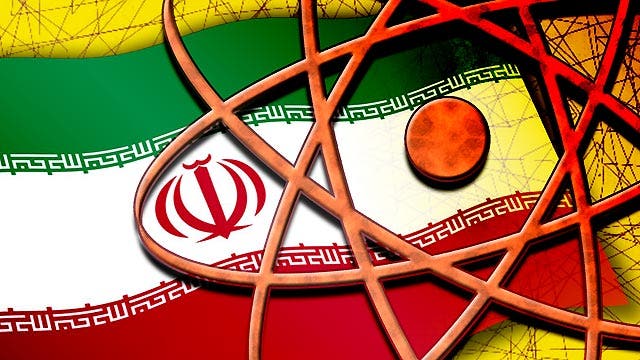What a nuke deal could look like: Falling into Iran's trap?
Report: Iran would be allowed to operate 6,000 enrichment centrifuges, international sanctions immediately eased under deal being worked on in Geneva between Tehran and six world powers
International sanctions that have crippled Iran’s economy for years would be immediately eased and the Islamic Republic could continue to enrich uranium under the terms of a deal being hammered out in Geneva between Tehran and six world powers, according to a report Thursday.
Citing a draft that would serve as a framework for a 10-year deal between Iran and the five permanent members of the UN Security Council, plus Germany, The Associated Press reported that Iran would be allowed to operate 6,000 enrichment centrifuges it claims are for peaceful purposes -- while getting immediate relief from international economic sanctions.
U.S. lawmakers skeptical of Iran’s true intentions raised fresh concerns about the deal in a letter Thursday to the White House.
“Iran’s role in fomenting instability in the region -- not to mention Iran’s horrendous repression at home -- demonstrates the risks of negotiating with a partner we cannot trust,” stated the letter, whose signatories included majorities of both parties.
“I wouldn’t trust these people with a spare electron.”
State Department spokeswoman Jen Psaki denied that there is a draft report circulating among the parties holding talks. The U.S. and the five other world powers, who also include Great Britain, France, Russia and China, have been negotiating with Iranian officials under a self-imposed March 31 deadline, with U.S. Secretary of State John Kerry and Iranian Foreign Minister Mohammad Javad Zarif doing most of the heavy lifting. The deal would be aimed at unshackling Iran from United Nations economic sanctions put in place in 2006 while giving the international community the ability to ensure the hard-line regime is not building a nuclear weapons stockpile.
Any March framework agreement is unlikely to constrain Iran's missile program, which the U.S. believes could ultimately be designed to deliver nuclear warheads. Diplomats say that as the talks move to deadline, the Iranians continue to insist that missile curbs are not up for discussion. The deal would likely leave in place a ban on other nations transferring missile technology to Iran, however.
Separate U.S. sanctions would be phased out as part of a deal, although U.S. lawmakers have vowed to block such a move and also dispute the White House’s ability to enter into a binding deal with Iran.
U.S. Rep. Ed Royce, R-Calif., chairman of the House Foreign Affairs Committee, called for a hearing with top Obama administration officials from the State and Treasury departments to hear testimony on the negotiations.
Following the March 31 deadline, the parties would have until sometime in June to agree on all of the details.
Iran's nuclear program has been under international scrutiny for a dozen years, since the regime blocked UN inspectors from verifying Iran was abiding by international mandates regarding its alleged nuclear weapons program.
It is not clear how many centrifuges -- the machines that enrich uranium for possible weaponization -- Iran now operates. Estimates have been as high as 20,000. The U.S. believes reducing the number of centrifuges will forestall by a decade or more Iran’s ability to make a nuclear weapon.
Former U.S. Ambassador to the United Nations John Bolton said simply regulating the number of centrifuges is not enough to restrict supply, because better technology can increase production from each machine. More importantly, Bolton said, there is no reason to trust the Iranian regime, which traces its rise to power to the 1979 attack on the U.S. Embassy and which routinely calls for attacks on Israel and America.
“When they sign the deal, that will be the beginning of new negotiations, because Iran will violate the agreement before the ink is dry and then we’ll be back at the table,” Bolton said. “I wouldn’t trust these people with a spare electron.”
In addition to reducing the number of centrifuges, the deal would commit Iran to accepting rigorous monitoring of its nuclear program. A planned heavy water reactor would be re-engineered to produce much less plutonium than originally envisioned, relieving concerns that it could be an alternative pathway to a bomb.
For Iran, any deal granting sanctions relief would immediately boost the economy, which is especially hurting due to the bottoming out of oil prices.
Frank Gaffney, of the Washington-based Center for Security Policy, said the sanctions are the only leverage the West has against Iran, and surrendering it up-front makes what is being reported a bad deal.
“We cannot trust the Iranians to do anything other than to pursue what they have been pursuing for decades, a nuclear weapons program, secretly and in the open,” Gaffney said.
If Iran violates its end of the bargain, reinstating sanctions that resulted from arduous diplomatic wrangling will prove impossible, he said.
“There isn’t a snowball’s chance in Hell you would get the Chinese and Russians back on board,” Gaffney said. “This is a permanent unraveling of the sanctions.”
Washington believes it can extend the time Tehran would need to produce a nuclear weapon to at least a year for the 10 years it is under the moratorium. Right now, Iran would require only two to three months to amass enough materiel if it covertly seeks to make a nuclear bomb. Among U.S. allies, France is the most adamant about stretching out the duration of the deal. A European official familiar with the French position told the AP it wants a 25-year time-span.
Any agreement faces fierce opposition from the U.S. Congress as well as close American allies Israel and Saudi Arabia, which believe the Obama administration has conceded too much.
After the deal expires, Iran could theoretically ramp up enrichment to whatever level or volume it wants.
The Associated Press contributed to this report





